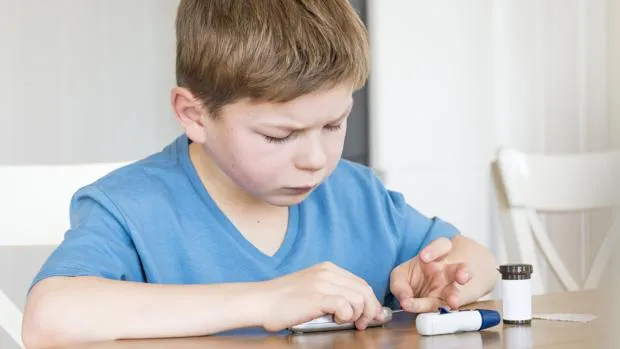82% ensure that their children's diabetes has a strong impact on family life.
Most children with diabetes express negative emotions about their illness, since they feel that it limits their social life, their practice of physical activity and education.
With the aim of knowing the challenges that parents of children with diabetes continuously face and identifying the main obstacles of disease control in the pediatric population, Abbott has carried out a European survey on children's diabetes that analyzes the effects of the disease onthe quality of life of the child and families.
The results show that 80% of Spanish parents feel that the life of their children with diabetes (from 4 to 14 years) is limited;20% of children have had to leave school because of their condition, while 59% have had to stop playing sports and 10% feel different and away from the rest of their friends.
Glucose measurement is the main obstacle for the child with diabetes not to interrupt their activities, and most parents ensure that an easier device to use to measure their children's glucose would improve the child's life and health with diabetes, and that of his family.
600 parents of children with type 1 diabetes have participated in the survey between 4 and 14 years, from seven different countries (Spain, Germany, Italy, France, the United Kingdom, Sweden and the Netherlands).The knowledge of children on diabetes, the impact of the disease on their daily lives and the challenges that diabetes entails for the family are the three main aspects that the survey analyzes.
puncture on the finger and stress
44% of Spanish parents ensure that glucose measurement is the main cause of the interruption of their children's activities.Children make a puncture on the finger on average 6 times a day and the fact that they do not like to puncture on the finger causes stress in the personal and family life of the parents.They do not like several reasons: 45% for discomfort, 30% for pain and 14% feel ashamed.
Diabetes and dream quality of parents and children
Sleep quality is an important issue for parents of children with diabetes, since the child's rest can be interrupted many times by glucose control, treatment or visit of doctors.In fact, 51% of children suffer from sleep alterations due to diabetes control, and that more than 63% have had at least one episode of severe hypoglycemia during sleep.
One of the greatest concerns of parents (50%), are the long -term complications that diabetes entails, while the main fear of 26% of children with diabetes is to suffer episodes of short -term hypoglycemia.To avoid these complications, good diabetes control is necessary and carry out the proper treatment.
Diabetes presents a huge emotional burden for parents and children.More than half of the parents (54%) are concerned that, taking care of a child with diabetes, insufficient attention is given to the other children, and almost 30% of them believe that their child's diabetes is a strongeconomic impact for the family.
In addition, 70% of parents say they feel exhausted due to the pressure of care of their child's diabetes, 35% declare that the relationship with their partner, 34% will not work regularlyTo take care of their child, and 27% do not find time for themselves.
Concern for the future of his son with diabetes
While 68% of parents say that their children with diabetes understand the meaning of the disease, only half of children with diabetes are truly aware of the possible consequences of bad control ofglucose levelsOn the other hand, not all parents feel supported by the control of their child's disease.
29% of parents feel they have control, 48% only feel control when the child is under their supervision, and 37% are concerned that their child's diabetes is not properly controlled without their supervision, such as when they are inThe school.
In this sense, more than half of the parents (60%) ensure that an easier device to use to measure their children's glucose would improve the life and stress level of all family members, as well as healthof children.In addition, parents ask for a better education to dissipate erroneous ideas about type 1 diabetes and improve the treatment of this problematic disease.





